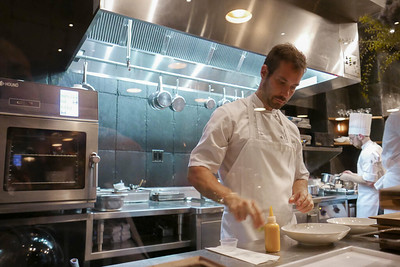
The concluding part of the blog will throw light on more tips by which restaurant owners can increase the productivity and bottom-line of commercial kitchens. Read on…
Selection of appropriate materials for different cases:
Stainless Steel (SS) is the most preferred material. It is highly durable, robust and has a good working life. These are important characteristics to be considered when it comes to investment decisions. Besides, stainless steel is considered to be extremely hygienic, highly sanitizable and easily cleanable. Furthermore, there are other elements that need to be considered for specific uses: cast iron (in plates and grills), brass (in gas burners) and chrome (chrome-plated grilling surfaces), etc.
Select the design by components:
If the restaurant owner follows this type of design, it becomes easier to maintain machine parts and process hygiene so that even in case of any failure, replacing and removing the part is easier—neither the normal work procedure is affected nor kitchen routine delayed.
Improved cleanliness and hygiene:
Hygiene is of utmost essence in any restaurant or catering business, but gains greater significance in a commercial kitchen. It is important to remove visible dirt, including remains of food particles and dirt in the kitchen area as well as undetectable dirt such as those accumulated in the extraction ducts, hoods, in sinks, holes and slots, etc.
Select cutting-edge technology:
Today’s commercial kitchen is all about automation or computerization of tasks. It has streamlined most of the everyday tasks like never before. For example, automatic on and off switches, automation solutions including food processing and delivery has raised system efficiency, thereby leading to enhanced business profitability.
Energy efficiency:
One major development which has had deep impact in the success of today’s commercial kitchens is energy efficiency. Be it cost savings or respecting the environment or ecology, energy efficiency plays an important role. It is important for commercial kitchens to adopt energy efficiency as a single-minded pursuit and reap its benefits.
Daily routine check-up:
It is important to do routine check-up of day-to-day kitchen operations. Not only does it provide a safe and positive environment to work, but also thwart potential disasters or a minor issue from blowing out of proportion.
Copyright © 2024 EssEmm Corporation